About Us
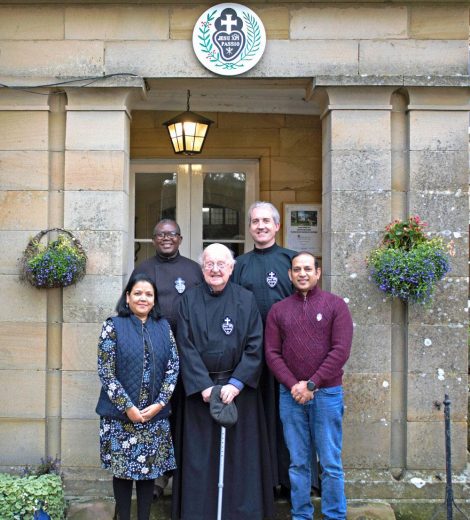
About Us
Our resident community
We are a Christian place of prayer with a resident community of Roman Catholic Passionist priests, nuns and lay people. The presence of our community creates a prayerful and homely atmosphere.
The community gathers every morning and evening in the chapel to honour the day with prayer and the celebration of the Eucharist. Guests are welcome to join us and participate in the rhythm of the day.
Through a spirit of hospitality and welcome we create space for guests where they can feel at home, be themselves and enjoy the peace and natural beauty which surrounds us.
In picture (L to R) : Tina, Fr Emmanuel, Fr Mark, Fr Antony, Pavan
The Minsteracres Team
At the heart of Minsteracres Retreat Centre is a Passionist community of priests and nuns as well as lay people from different cultural backgrounds and nationalities. Together with the staff and our volunteers we offer a warm welcome and promote an environment to encourage relaxation, reflection and spiritual renewal.
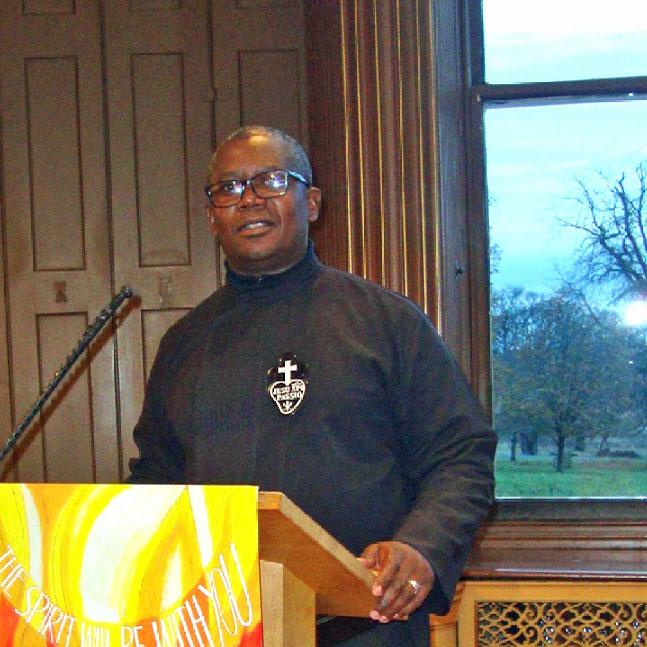
Father Emmanuel
Rector and Retreat Director
Fr Emmanuel Kabinga has recently been appointed Rector here in Minsteracres. Born in Mufulira on the Copperbelt province of Zambia Fr Emmanuel’s vocation was nourished at Mukasa Junior Seminary and he was ordained a Passionist Priest on 19th August 2006. Fr Emmanuel has worked with some of the poorest people on earth.
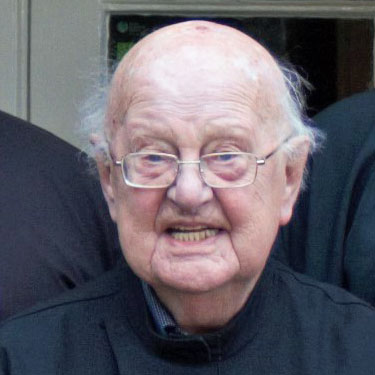
Father Mark
Community Member
Fr. Mark has lived at Minsteracers for over 50 years and is well known to all. For many years he was a novice master and also in charge of the buildings and the estate.
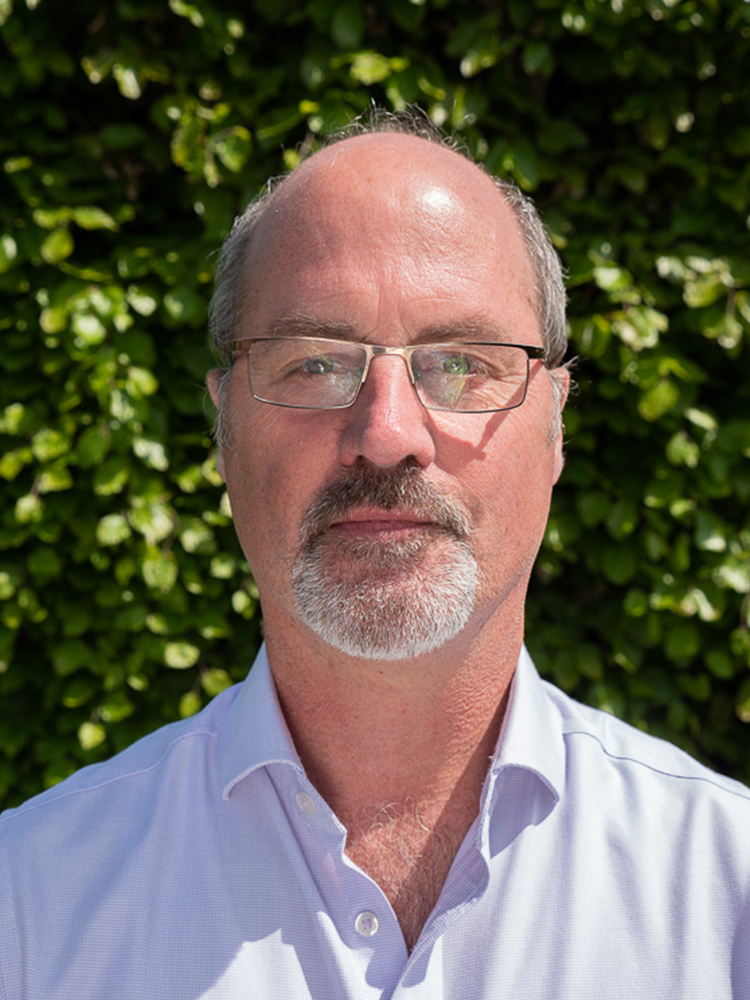
Geoff Bockett
Director
Geoff is responsible for the overall day to day running of Minsteracres including Finances, HR, Safeguarding, H&S Buildings and Estate.

Margo Mooney
retreat Centre Administrator
Margo is the voice and face of Minsteracres and will normally be your first point of contact. She will liaise with you to make the arrangements for your visit.
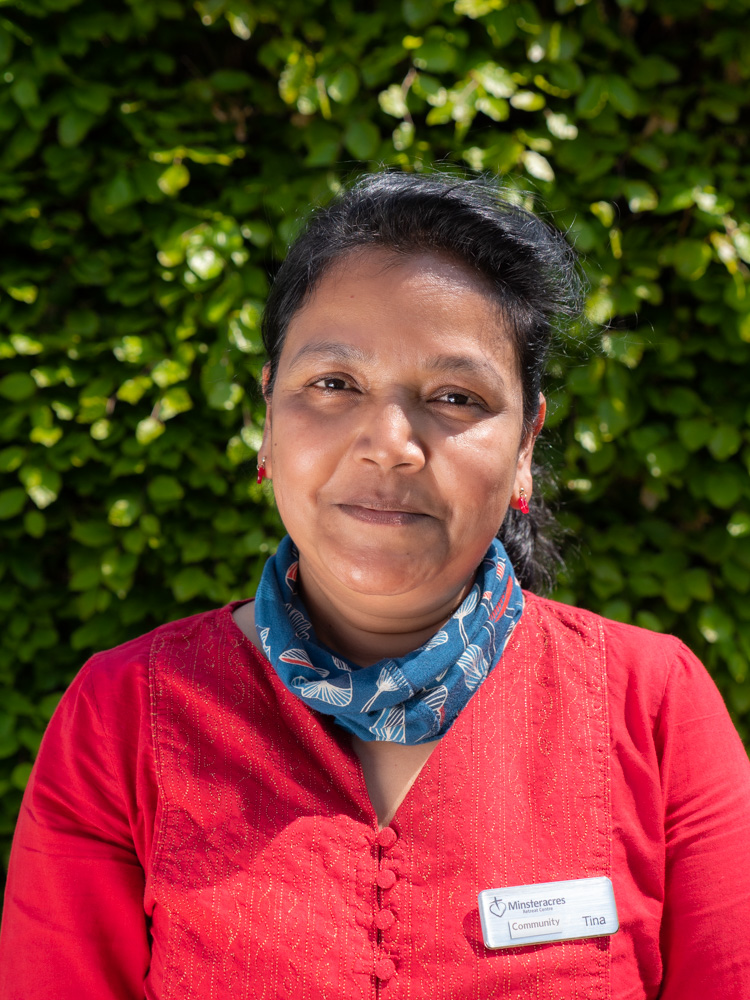
Tina Martin
Hospitality Manager
Tina is responsible for welcoming you and together with our volunteers ensuring your visit is as comfortable as possible.
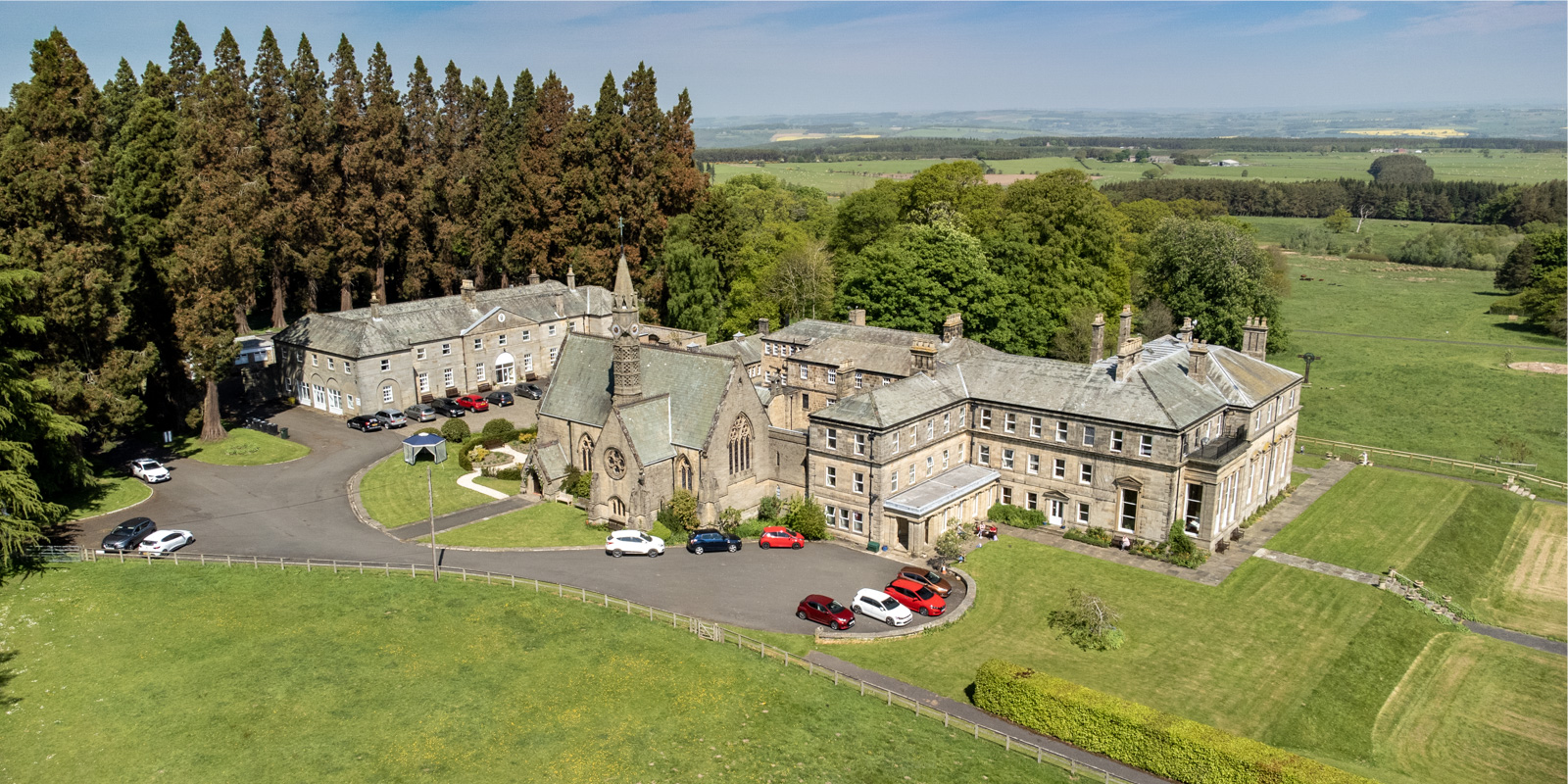
Our Heritage
The name ‘Minsteracres’ goes back to medieval times when the land around the present retreat centre was already in use as farmland.
Some suggest that its origin lies in a quarry for millstones (‘mill stone acres’). Other suggest that the name goes back to the times that the land belonged to a monastery, which is quite possible with its close proximity to Bywell and Blanchland.
In the 18th century the Silvertop family became associated with Minsteracres. This Roman Catholic family from Stella had done well in the coal mining industry. They used their money to buy land at Minsteracres, build a mansion and develop the estate.
After the first section of the house had been completed (in the 1750s) they opened a Roman Catholic mission (in 1765). A chaplain was appointed and a room in the house was converted into a chapel.
During the next century the estate was extended and further cultivated according to the latest agricultural methods. George Silvertop (1775-1849) played an important part in Catholic emancipation. In 1830 he was the first Roman Catholic to become high sheriff of Northumberland after the reformation.
After his death his grand-nephew Henry Charles inherited the Minsteracres estate. He built the church (opened in 1854 after a design of Joseph Hansom) and extended the house with the ballroom and dining room (now the chapel), also designed by Hansom.
The family then experienced tragedy upon tragedy. Henry Thomas inherited the estate from his father but died suddenly in 1893. His son Francis Sommerled and other family members were killed in World War I. The heir, Charles, decided to sell the estate. Most of the land (around 5,000 acres) was sold to the Cookson family. Most of the original estate (110 acres) was sold to the Passionist congregation.
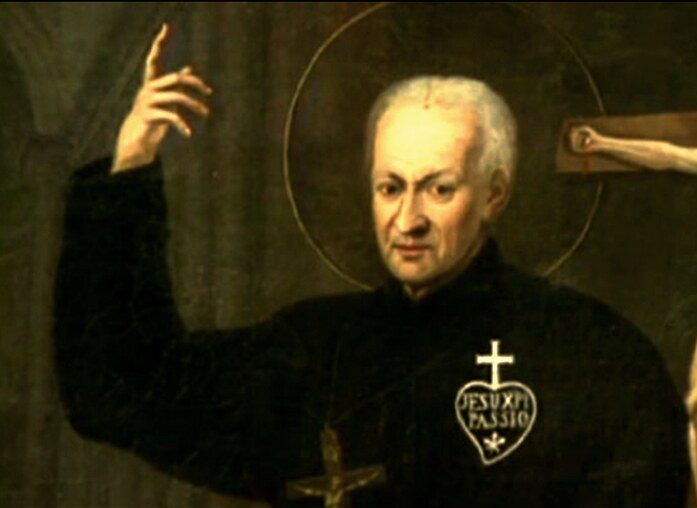
From Mansion to Monastery
The Passionists converted the mansion into a monastery with space for around 35 priests and brothers. It was intended to become a model Passionist community that offered the right environment for the training of Passionist students. This happened throughout the 1950s till the middle of the 60s.
The students then moved to other centres and Minsteracres became a novitiate house. At the same time another dream was realised, namely to open a retreat house. In order to achieve this, the old stable block was converted into residential accommodation, mainly with the help of volunteers from the Consett area who generously gave their time. The retreat house was opened in 1967.
Over the years many people have come here on retreat. During the first decennia of its existence parish retreats were very popular. Apart from this the centre offered a programme with themed retreats and there has always been the opportunity for individuals to come on retreat.
New initiatives were launched, such as the beginning experience for widowed separated and divorced. And in the 1980s the Manpower Service Programme used Minsteracres as one of its bases.
The number of Passionists in the community decreased and in 1976 a partnership started with the Selly Park Sisters. At a later stage the Mercy Sisters from Sunderland got involved. Over the years the community has become more inclusive through membership of lay women and men who shared its life on a full time or part time basis.
In 1999 the Passionists in England and Wales decided to adopt different priorities. A new structure was developed for Minsteracres to safeguard its future development. In 2012 a new charitable trust and company were set up which runs the retreat centre on behalf of the Passionists.
The board has Passionist representatives and the community continues to be a Passionist community.

The Passionists
The Passionist Congregation was founded in Italy in the 18th century by St. Paul of the Cross. He gathered companions to live in community. The members had a simple lifestyle and dedicated themselves to prayer, penance and solitude. At times some of the community members went out to preach retreats and missions, especially to people and communities that were being neglected by the church at the time.
Paul of the Cross found his inspiration in the Passion of Christ which he experienced as the core revelation of God’s love for everyone. He dedicated his life to keeping alive the memory of the Passion. It inspired him to reach out with compassion to the people who lived on the sites of suffering of his time.
In 1841 the Passionists came to England. Blessed Dominic Barberi was the first to set foot on English soil. Communities were established and pastoral work was taken on, especially to the recently arrivals from Ireland who often lived in very difficult situations in the industrial towns. From the beginning there was also a strong interest in ecumenism. Fr. Dominic and especially Fr. Ignatius Spencer dedicated themselves to prayer for Christian unity.
After the Second World War the Passionists of St. Joseph’s province (England, Wales and (in the 1950s) Sweden) were looking for a house of formation for the increasing number of young men that joined the congregation. They came across Minsteracres which was for sale and in December 1949 ownership of the hall, the outbuilding and 110 acres of the estate, passed from the Silvertop family to the Passionist Congregation to become a monastery. The Passionists also took over the responsibility of the Roman Catholic mission that had been based at Minsteracres since 1765.
At the moment the Passionist Congregation has over 2,000 members and is represented in all continents. They are all guided by the inspiration of St. Paul of the Cross to keep alive the Memory of the Passion of Christ. In spirit of prayer and compassion they try to be attentive to the needs of all, especially of those who share in the Passion of Christ through suffering and marginalisation.
In England and Wales Passionist ministry started with preaching of retreats and missions, Other ministries developed, especially after the Second Vatican Council. The Inner City Mission was the most significant development in St. Joseph’s province when province members went into the inner cities to live and work among the people of deprived areas. In the late 90s this approach to Passionist life was adopted as the main focus of St. Joseph’s province into the future.
St. Joseph’s province is part of the North European region (Configuration of Charles Houben). It consists of 6 provinces with a presence in Poland, Ukraine, Czech Republic, Belgium, England, Wales, Sweden, Ireland, Scotland, the Netherlands, Germany and Austria.
At Minsteracres there are currently Passionists priests from the Republic of Ireland and Zambia.
In the grounds of Minsteracres there is the Monastery of Our Lady of Holy Hope. The nuns who run this belong to a branch of the Passionist family which goes back to the 18th century. The founder of the Passionists, St. Paul of the Cross, felt that a contemplative community of women would enhance the apostolic and pastoral ministry of the Passionists. The first community was established
in the 1770.
In 1963, nuns from the USA formed a foundation in England and a community was established in Daventry, Northamptonshire. For many years they lived a quiet life of contemplation and prayer for needs of the world and ministry of the Passionists.
Due to lack of vocations In 2005 it was decided to downsize and moved to the grounds of Belmont Abbey, and then onto Minsteracres to live closer to other members of the Passionist family.
They bring with them another dimension of community life through their contemplative presence.

The Minsteracres Prayer
Dear Lord, We thank you for the beauty and peace of Minsteracres.
By your grace, enable us to be a community of welcome and love, compassion and healing, hope and reconciliation.
Unite us in friendship that we may follow the path of your cross and resurrection and serve you and one another with joy.
Fill us with your Holy Spirit to live and work for your praise and glory.
Through Jesus Christ, our Lord.
Amen.
Minsteracres Retreat Centre
Sustainability
We try to live according to the values of simplicity and sustainability because we believe that with less we can achieve more. We also believe that the way in which we live has an effect on the wellbeing of both people and planet.
St Paul of the Cross gathered companions to live in community and share the good news of God’s love. Likewise we come together as a community and offer a welcome to people of all faiths and none who may be experiencing difficulties in their lives.


